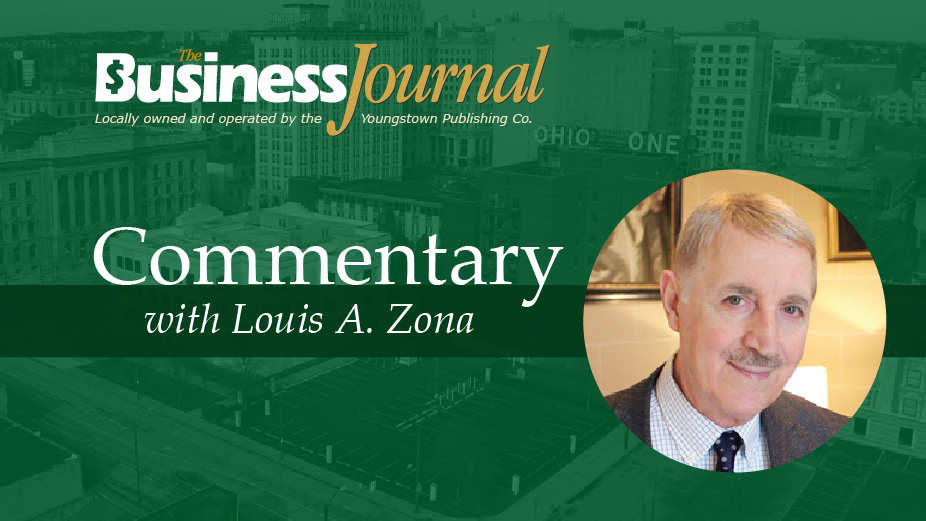By Louis A. Zona
YOUNGSTOWN, Ohio – Pop artist Andy Warhol once remarked that the best part of being famous was that it enabled him to meet his equally famous idols such as Alfred Hitchcock, Liz Taylor and John Lennon, among others.
Radio personality Howard Stern often talks about the incredible transformation in his life when he became famous.
The magic of fame has opened many doors for Stern. But, on the other hand, it has made him a target of people who would take valuable time away from personal projects, including planning for his radio program.
Politicians have used their fame garnered from the world of sports or entertainment to advance their careers. It has proven to be most effective since the public is drawn toward famous people, willing to elect them over their not-so-famous opponents. It did not hurt Ronald Reagan, who, for example, used his smarts and celebrity to eventually become president. John Glenn’s fame as an astronaut eventually propelled him into the U.S. Senate.
Political offices at every level are boosted by fame, whether we’re talking about a popular TV doctor or a country western star gaining an advantage through being well known.
We are reminded that the TV program “The Apprentice” ran for 12 years and made an already well-known man even more familiar and directing him to the Oval Office.
There are those who use their fame to do significant good in the world, like the late movie star Doris Day, who devoted her post-Hollywood years to animal charity organizations and shining a light on animal cruelty.
Beth Stern has devoted years of work in rescuing stray and endangered cats.
Who can ever forget the incredible accomplishment of the late actor Danny Thomas? He used his fame and his faith to create St. Jude Hospital, which is dedicated to wonderful work in caring for sick children and not wanting any payment.
Fame can be seen as an amazing resource or it can be seen as merely another tool toward acquiring more riches for the person who has it.
Isn’t it wonderful when famous people, like Frank Sinatra, who tried to be anonymous about his generosity, used his status as a singer and actor to raise funds to build orphanages and medical facilities in Israel, Africa and poor neighborhoods across the United States?
After Sinatra’s death, friends of his such as Sammy Davis Jr. divulged his generous ways. One incident relating to Sinatra’s generosity was when the legendary African American boxer Joe Louis became seriously ill and unable to pay for his hospitalization. It was Sinatra who paid for Louis’s medical care.
When Sinatra learned that actor George Raft was broke and unable to pay his bills, he intervened. And that story was repeated often. Sinatra’s fame as one of America’s greatest entertainers did much good and he performed acts of kindness as quietly as possible.
Sports teams often have set up foundations dedicated to community improvements. They use their most famous players to promote the worthwhile endeavors of their foundations.
Both the Cleveland Browns and the Pittsburgh Steelers have pet projects in their respective communities that they support, particularly projects and programs aimed at children. Both football teams apply the fame their stars generate as players to serve their communities.
When you think about it, notoriety has pretty much the same power to move people.
I was watching a show on public television where people bring in their valuables for an expert to appraise. A letter that Bonnie and Clyde co-signed went for thousands of dollars. The fact that they were on the wrong side of the law was probably the reason that the letter had extraordinary value.
Being well known is being well known, regardless of whether it’s fame or notoriety.
I dare say that Al Capone’s fedora just might be more valuable and popular than a hat Billy Sunday once wore. Call it bad boy fame, infamy, notoriety or something like that. Regardless, it is the quality of being well known.
What certainly added to the mystery and infamy of Shoeless Joe Jackson, the great baseball player from the 1920s, was that he threw the 1919 World Series.
When the movie “Field of Dreams” hit theaters, the world was introduced to the infamous Shoeless Joe. With each showing of the film, Shoeless Joe’s fame grows even more.
I join the legions of people who are attracted to the power of fame and the famous among us.
I was born too late and in the wrong place to have experienced the awesome fame of Babe Ruth or Lou Gehrig. But, I must tell you that when I stood only a few feet from Roberto Clemente, I could feel the pull of his fame.
Getting close to Tony Bennett over a period of years helps me to better understand true fame, what hard- earned fame is all about.
Walking with him down Madison Avenue and seeing a crowd of 50 to 100 people following behind us gave me a better glimpse into fame at eye level. Everyone respected his privacy with only an occasional “Hi, Tony” interrupting our chat.
I admit that I very much enjoyed the experience of temporarily living in Tony Bennett’s circle of fame. His greatness, his kindness and the reach of his international fame offered much to behold.
I realized as it happened that I was experiencing a once-in-a-lifetime journey into greatness. And realizing that he had known every president since Harry Truman and that he had marched with Martin Luther King made that journey so much more special.
